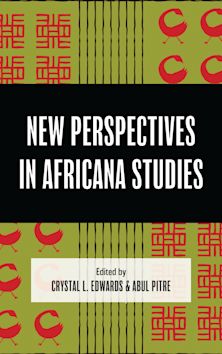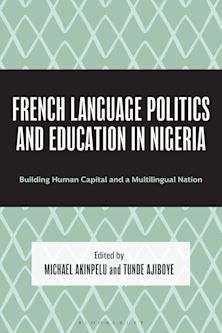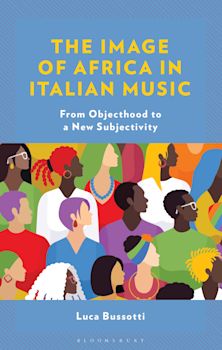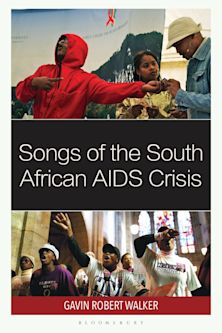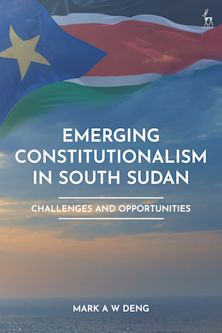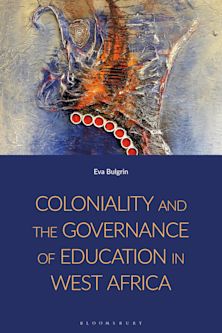- Home
- ACADEMIC
- African & Africana Studies
- African and Africana Studies - Other
- Travel and the Pan African Imagination
You must sign in to add this item to your wishlist. Please sign in or create an account
Description
Travel and the Pan African Imagination explores the African Atlantic world as a productive theater or space where modernity, racialized dominance, and racialized resistance took form. The book stresses the importance of placing three Atlantic figures—the Charleston, South Carolina-based armed resistance leader Denmark Vesey; the West African emigration advocate Edward Wilmot Blyden; and the Christian missionary and teacher in Liberia as well as the United States, Alexander Crummell—within an Atlantic context and as African world community figures between the late-eighteenth and early-twentieth centuries. The book also examines the religious origins of Black Power ideology and modern Pan Africanism as products of the intense dialogue within the African world community about concepts of modernity, progress, and civilization. Tracy Keith Flemming identifies how travel and social mobility led to the generation of an ever more complex and dynamic Atlantic world and of a fluid and adaptive African world community imagination for those figures who were forced to operate within and against a racially framed universe. The vexing social position and symbolic figure of “the African” was central to the dilemmas facing the racialized imagination of African world community figures and the discipline of Africology.
Table of Contents
Chapter 1: Denmark Vesey, Armed Resistance, and the Emergence of Pan Africanism
Chapter 2: Explorations of Christianity and Islam: Edward Wilmot Blyden’s Travels in Africa and the Middle East
Chapter 3: “We need some African power”: Edward Wilmot Blyden and The Negro, or The Conservative Origins of Black Power Ideology
Chapter 4: Anglo-Africans and Negro-Saxons: Writing the History of African Nationalism via Alexander Crummell
Conclusion: Africology and the New Millennium
Selected Bibliography
Product details
| Published | 02 Sep 2021 |
|---|---|
| Format | Ebook (PDF) |
| Edition | 1st |
| Extent | 1 |
| ISBN | 9781978750593 |
| Imprint | Lexington Books |
| Illustrations | 1 b/w illustrations; |
| Series | Black Diasporic Worlds: Origins and Evolutions from New World Slaving |
| Publisher | Bloomsbury Publishing |
About the contributors
Reviews
-
When some of us feel we have had enough of Pan Africanism, this book is an enticing read not only for Africans but also for the White Westerners who can’t speak up. This vibrant African-centered scholarly work comes in handy in an overall attempt to highlight the perspectives of African studies by an African-American leaving the West as both an academic and Afrocentric agency—Afrocentricity. Tracy Keith Flemming provides readers with case studies of three Atlantic figures (Vesey, Crummell, and Blyden) to reposition discussions on Black subjectivity and Pan Africanism. Travel and the Pan African Imagination engages ongoing conversations about the role of the Church in the formation of a gendered Atlantic intellectual landscape, racism as masculinity and power centeredness—White men versus coloured—a novel approach to masculinity as visible, and how particular historical and social definitions have developed, where they came from, and the way forward.
Daniel Yaw Fiaveh, University of Cape Coast, Ghana
-
If the emancipatory global Black project of our times is to remain viable and alive in the critical consciousness of “the African,” Blyden, Crummell, and Vesey (the three historical political-intellectuals and pan-nationalist African doyens) have an indispensable offering to Black/African people today. Then, now, and into the futures, Tracy Keith Flemming’s erudite exegesis in this timely text offers an analysis that allows these three oracular global African griots/prophets to speak to, critique, and dissent from what he characterizes as three audiences (“White Western racists, such as Arthur comte de Gobineau; fellow African world community figures in the West; and continental African people”) and while operating between Africa and Western imperial violence. Then, now, and into the futures of Pan Africa, global Black nationalism, and its rebirth in a world that has demonstrated its hostility toward Black/African thought, self-making, culture, personhood, humanity, and struggle for recognition, is imperative. Warped ideological (liberal imperialism) and cultural (Christianity and Islam) discourses of deracination ought to be questioned.
This text is a classic example of the forced eclecticism of African thought and philosophy in a cultural space of hostility it must extricate itself from—Africa must go through the violent space of Western framing of what constitutes Africa, its thoughts, peoples, and things, to the Africa that is to be reclaimed to become. Blyden, Crummell, and Vesey represent three political-intellectual and activist-philosophers whose contribution to Pan Africanism, as well as particular and generalized Black Nationalism, can be recovered toward the re-imagination, remembering and re-membering of Africa—a sort of Osirian project.
These three global Black prophets, and their moral, cultural, intellectual, and political oracles rang true then, ring true now, and will remain relevant into the foreseeable futures insofar as Africa remains in the throes of new guises of Western imperialism as well as late-comer imperial giants like China. In their divergence and convergence, these three prophets and their oracles embody classic Neferian and Osirian attributes while also displaying Orphean (Blyden) and Faustian (Crummell) tendencies. But this is necessitated by the tripartite audience they must speak to, write at, emancipate Black thought from, and the critical cultural and philosophical consciousness they must generate from an Africa (particular and global) that must awaken from wounds of modern imperial violence and its associated nightmares that Africans must awake from.
Flemming’s disciplined attempt to capture their individual contributions to the unbounding of Kush, Ethiopia, Nubia, Alkebullan, Affrilka, etc. is a new, trenchant and a refreshing rethinking of what African nationalism and Pan Africanism should entail in a world where the travel of ideas (a core component of the text), syncretic though they may be, remains pertinent in our age of high-speed technologies and the refashioning of knowledge.
Forging global Black nationalism as a counter-project and narrative to the White-Supremacist-slave-imperial-colonial-project and notions the text starts with remains the one and only moral duty of African thought—this in Flemming’s mind is and should be done in the Spirit of Sankofa – seeing the past, present, and future of Africans (global collective) as being inextricably woven. According to Flemming, the oracles these three prophets offer is at-once emancipatory and complex in their take on Whitocracy, Africanity, and culture. Combined, they lay a claim to the moral-existential integrity of global Black Africa as well as offer epistemic cultural subversion and subterfuge.
Flemming’s text is timely because it cuts across the fodder of un-nuanced existing Africological views. With few exceptions like Karenga, Mudimbe, etc., the epistemic heritage and quality of the historical, cultural, and ontological analysis registers a much-needed intervention in the way in which it marries the three principal audiences. It shows how their forced, conflictual, and deliberate dialogues serve as a progeny and posterity of a pan-nationalist African imagination that will forge and foster a new African self-making via a fourth audience emancipated from the fractured violence of the Euro-West and its cacophony of epistemic, ontological, and cosmological whirlpool and whirlwind of dissimulations masked as civilization.Richard Yidana, Grand Valley State University

ONLINE RESOURCES
Bloomsbury Collections
This book is available on Bloomsbury Collections where your library has access.












